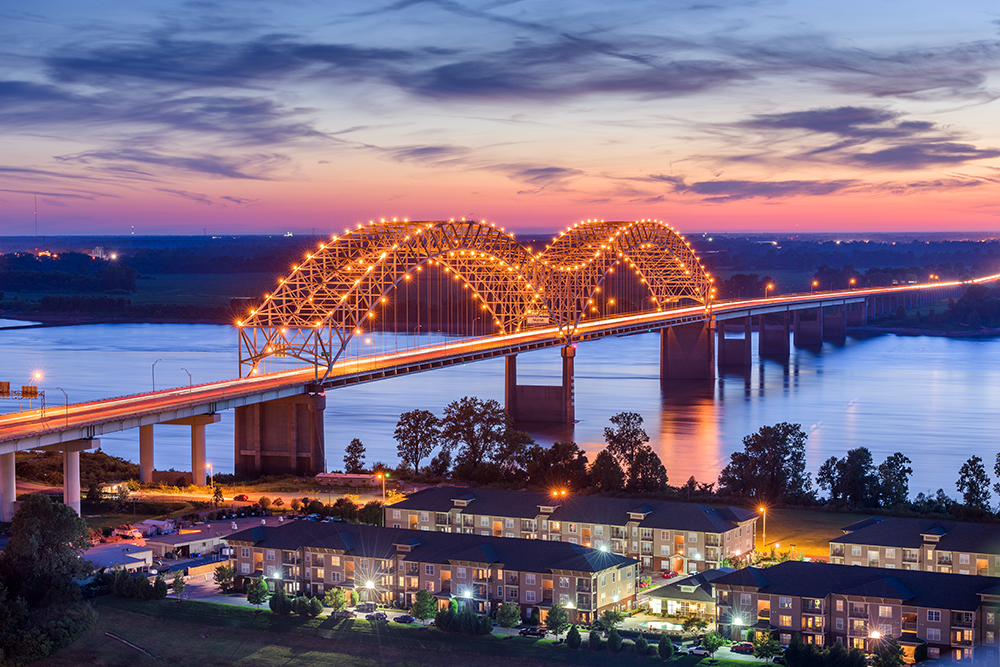Memphis has a perception problem. It’s apparent any time you read comments on local news posts regarding crime — “That’s why I got out of there.” “Oh, another one. This happens every day.” Or when you tell someone where you’re from — “It’s easy to get shot there, isn’t it?” “It isn’t safe there, right?” Of course, those of us who live here are aware of crime, the poverty and sub-par education system that contribute to it. We hear about shootings, robberies, carjackings practically every day if we’re tuned in to the news. And that’s part of the issue. There is a rift between reality and perception that is perpetuated by media, then spread far and wide by media consumers.
On July 1st, the Memphis Police Department shared a graphic on Facebook showing that in the first months of 2025, overall crime was down 20 percent, with shooting incidents down 28 percent and murder down by 15 percent compared to the first half of 2024. On July 23rd, the Memphis-Shelby Crime Commission released a report showing slightly different numbers, with the overall crime rate dropping 15.7 percent during that time frame and the rate involving offenses with guns falling 12.4 percent. While the misaligned numbers raise some questions, they may be attributed to differences in the way TBI and MPD track reported crimes, which our news editor Toby Sells touched on in a May story — “Homicide Capital? Maybe” — after FBI Director Kash Patel deemed us so on Fox News.
Regardless, crime is falling, but people wouldn’t know it by keeping up with the news. And that is what our guest writer, Ole Miss journalism student Grace Landry, explored in this week’s cover story. She spoke with crime reporters from local news outlets on how reporting for clicks feeds into this negative narrative. “If it bleeds, it leads” is not the best approach — we must consider victims, their families, and the community as a whole, all of whom are affected.
I’ve lived in Memphis since I was a student at U of M, somewhere in the vicinity of 20 years. In that time, I’ve had my car broken into (more than once), been threatened at gunpoint (and knifepoint, and bat, uh, handle). I’ve had a bike stolen from my porch. I personally know someone who was carjacked, shot, and left for dead; someone who was a victim of a random interstate shooting; someone whose addiction had them buying crack at a gas station Downtown; someone who bounced from dope house to dope house in southwest Memphis, was trafficked, and was homeless before dying from fentanyl/heroin overdose; someone who ended up on the streets of South Memphis with a bad drug habit and a pimp, and was ultimately murdered. (Jessica Lewis’ 2011 killing is still unsolved. We haven’t forgotten, MPD. Please reach out to us. My email is at the end of this column.)
You may wonder, if I have seen all that, if I know all of this is happening in my city, to my friends, to me, why would I stay here? Why would I defend Memphis? That’s a great question, and one that I have been trying to find the words to answer for a while. There is something to be said about adversity and survival. Something to be learned from the harshness of the city’s frayed edges. There is proof here of it all. Good and bad. Grit and grind. There is a realness here that can’t be matched, a truth we can find between the dark and light if we peer deep enough. And there is clearly a ton of work that still needs to be done — in underserved communities with at-risk youth, within the police department, in Memphis-Shelby County Schools, and beyond.
As a small-town Mississippi native, I chose Memphis as a college destination for its diversity and its location in a not-too-big “big city.” I knew there was much for me to learn beyond what was required for my degree, and I would not learn that in the Delta. My scope of view would have been terribly limited. Here in Memphis, I have seen the beauty of the community coming together in tragic times (Tyré Nichols, Eliza Fletcher). I’ve seen the thriving music and arts scene. I’ve seen love and hope and connection in equal measure alongside perceived danger, fear, and flaws. This city has taught me so much. It has hurt me and helped me. It has toughened me and inspired me. This imperfect place is home, and I’m happy to share it with you all.
Shara Clark
shara@memphisflyer.com
